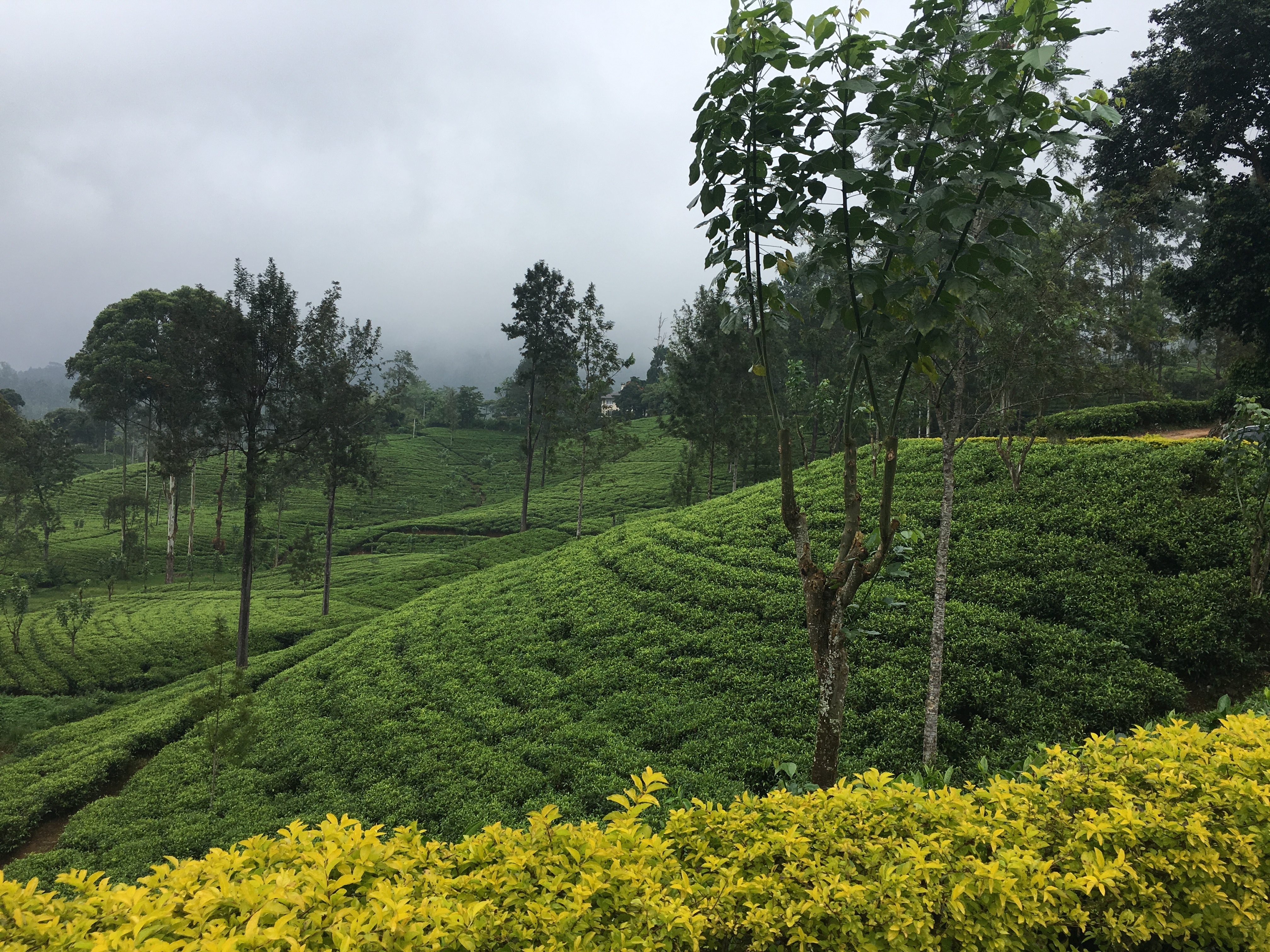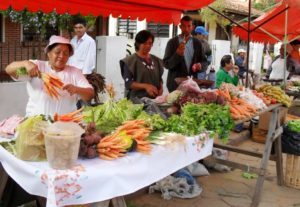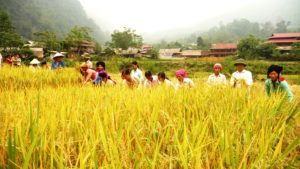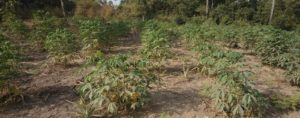The Global Bioenergy Partnership (GBEP) has produced a set of twenty-four indicators for the assessment and monitoring of bioenergy sustainability at the national level. The GBEP indicators are intended to inform policymakers about the environmental, social and economic sustainability aspects of the bioenergy sector in their country and guide them towards policies that foster sustainable development.
FAO, which is among the founding members of the Global Bioenergy Partnership, implemented the indicators in Paraguay and Viet Nam, with generous support from the International Climate Initiative (IKI) of the Federal Ministry for the Environment, Nature Conservation, Building and Nuclear Safety of Germany.
The overall objective of the project was to strengthen the capacity of Paraguay and Viet Nam to monitor the environmental, social and economic impacts of their bioenergy sector, through the implementation of the GBEP Sustainability Indicators for Bioenergy and related technical support. Furthermore, the project aimed to inform and support the design of effective sustainable bioenergy policies as part of low carbon development strategies.
IN THE PHOTO: Vegetable Stall in Paraguay. PHOTO CREDIT: FAO/Fabiola Alcorta
The project focused on two bioenergy pathways prioritised in each target country through a participative and cross-cutting approach that involved both the public and the private sectors brought together in a Multi-Stakeholder Working Group (MSWG). The prioritised pathways were forest biomass for energy, at both household and industrial levels, and ethanol from maize and sugarcane in Paraguay; and biogas at household, farm and industrial levels, and cassava-based ethanol in Viet Nam. Project activities were implemented together with 3 relevant national research institutions in each target countries, which received continuous support, technical guidance and back-stopping from FAO experts.
The project contributed to set the basis for the constitution of a national platform for the long-term monitoring of bioenergy sustainability, in both Paraguay and Vietnam. As such, it allows assessment of the contribution of modern bioenergy to climate change mitigation and sustainable development and thus to the implementation of the Nationally Determined Contributions (NDCs) and of the Sustainable Development Goals (SDGs). Furthermore, by monitoring the sustainability of modern bioenergy production and use, important indications were obtained regarding the effectiveness of bioenergy support policies and the achievement of the related objectives (e.g. GHG emission reductions, increased energy diversity and access, etc.), in addition to the identification of any unintended effects that such policies may have. The results of the monitoring could then be used to inform possible revisions and adjustments to these policies.
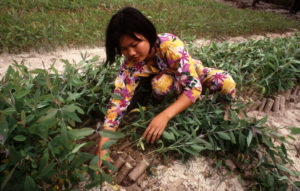
IN THE PHOTO: Young girl caring for tree seedlings at a smallholders’ nursery in Viet Nam. PHOTO CREDIT: FAO/Joan Manuel Baliellas
Through the Multi-Stakeholder Working Group, the project promoted inter-ministerial coordination and fostered a constructive dialogue among policy-makers, the private sector, civil society and academia. It raised the awareness of each of these stakeholders about the main sustainability issues associated with the selected bioenergy pathways and about the importance of monitoring the impacts of bioenergy production and use over time. Such periodic monitoring would enhance the knowledge and understanding of this sector and more generally of the way in which the contribution of the agricultural and energy sectors to national sustainable development could be evaluated.
The implementation of the GBEP indicators in Paraguay and Viet Nam also promoted the exchange of information, experiences and good practices among the national MSWG and at the regional level as well. As for the latter, regional workshops were organised in both Paraguay and Viet Nam, leading to fruitful discussions between policy-makers from different countries in each region, and paving the way for possible future cooperation opportunities.
Furthermore, the project strengthened the capacities of local research institutions to submit new project proposals to potential donors based on the experience gained with the measurement of the GBEP indicators. In addition, the Universidad Católica Nuestra Señora de la Asunción (UCA), which led the measurement of the economic indicators in Paraguay, established a new university course on bioenergy sustainability on the basis of the experience gained during this project and has independently begun the implementation of GBEP indicators on the biodiesel pathway in Paraguay.
IN THE PHOTO: Rice harvesting in Viet Nam. PHOTO CREDIT: FAO via Flickr
As well as building national capacities and contributing to a national platform for the long-term monitoring of bioenergy sustainability in these countries, the project also gave important results on the current state of the bioenergy sectors and made technical and institutional recommendations. For example, at the technical level, it highlighted that in order to improve the sustainability and competitiveness of the maize- and sugarcane-based ethanol in Paraguay and enable an expansion of ethanol production without further pressures on land and land use, a sustainable intensification of feedstock cultivation is needed, especially for sugarcane and at small scale. This can be achieved through the adoption of more productive varieties and improved management practices, inputs and technologies, which should be promoted through adequate policies and incentives. Among other options, the possibility to use irrigation during dry periods should be explored, giving priority to highly efficient, precise technologies that minimize the risk of nutrient leaching and runoff.
In Viet Nam it was noted that biogas may be an effective option to replace fossil fuels and other less efficient and sustainable biofuels. However, the cost of building anaerobic digesters (ADs) is still high and the payback period is long. For this reason, the biogas sector still needs policy support in Viet Nam. Promoting power generation from surplus biogas at the farm and industrial levels would be key in order to ensure higher returns for investments in ADs. At the household level, micro-financing schemes could be established to support the installation of ADs.
IN THE PHOTO: Newly planted cassava farm for feeds production. PHOTO CREDIT: FAO /J. Monibah
For the cassava-based ethanol value chain in Viet Nam, it is important to highlight two issues that deserve particular attention for the future monitoring:
- The impact of cassava cultivation and harvesting on soil erosion (indicator 2): the E5 mandate may trigger an expansion of cassava production into sloping lands, where the risk of erosion is elevated. Therefore, sustainable agricultural practices for these regions should be identified and promoted.
- The impact of ethanol blending on gasoline consumption: this may impact the Government’s revenues and budget, in light of the important contribution of taxes and fees on gasoline products to the national budget.
Bioenergy is a very complex topic and the Global Bioenergy Partnership is a unique forum for governments, international and UN organisations as well as other stakeholders to address the challenges we are facing and promote bioenergy as a tool for sustainable development. I believe that this project is an excellent example of concrete willingness to work together to further the global goal of sustainable energy development for all and to achieve the sustainable development goals.


